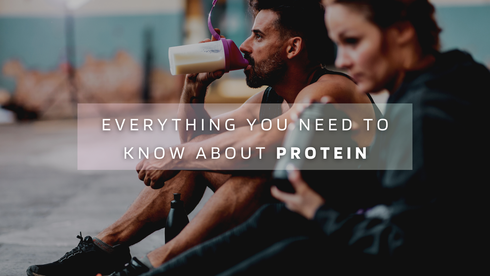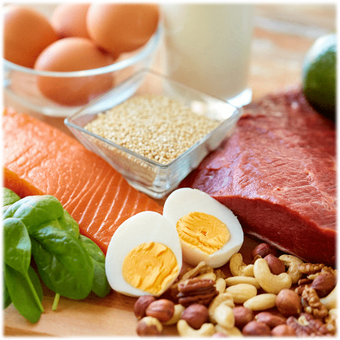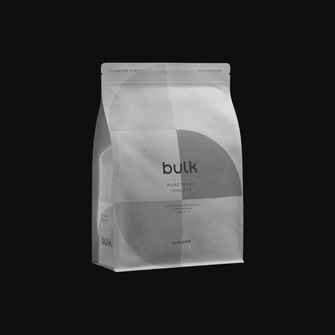What is Protein?Protein is found throughout your body & makes up the enzymes that power chemical reactions and the hemoglobin that carries oxygen in your blood. At least 10,000 different proteins make you what you are and keep you that way. Protein is made from twenty-plus basic building blocks called amino acids - the foundation for creating proteins. There's a total of 20 necessary amino acids, of which 12 are created by the body. The other eight are referred to as “essential amino acids,” (as they're necessary to sustain life). Trouble is, the human body doesn't naturally create them, meaning you have to obtain them through your diet. Animal protein contains all eight essential amino acids and large amounts of protein per serving. Plants, on the other hand, do not contain all eight in one source. So, for the vegetarian/vegans out there, be sure to eat a wide variety of plant-based proteins (& sufficient amounts of them) to ensure you're taking on board all eight amino acids. Why is Protein Important?Here's 3 big reasons why you'll want to take on board plenty of protein: 1) Muscle Growth Each time you exercise, micro-tears are created within the muscle tissue. This break-down of tissue is a natural & necessary process, but in order for it to repair & rebuild - for you to create bigger, stronger muscles - protein is essential. 2) Hormonal Health Protein is the building block for our cells and creates the structural framework for hormones to develop, acting as the internal communication to carry messages between organs, cells and systems. In addition, protein aids tissue repair. Without it, cells break down and weaken, leading often to autoimmunity problems. 3) Fat Loss Studies have shown that individuals eating a 'higher' protein diet exhibit greater fat loss than those on a 'standard' protein diet. The reasoning behind this is two-fold: Firstly, protein has a higher 'thermic effect of food' (it takes more calories to be broken down) than the other macronutrients. Secondly, protein is the most satiating of all 3 macronutrients. And if you feel full, you're naturally less likely to eat as much. Therefore increasing protein intake (generally at the expense of carbs) is an effective tool for weight loss. How Much Protein Should You Eat?The daily protein intake guidelines are generally way short of where they really should be. I typically recommend consuming between 1.5-2.0 grams of protein per KG of your bodyweight, per day. This applies both to people who want to build muscle mass & those who want to lose fat. An easy way to calculate this is to multiply your bodyweight (in KG) by 1.5-2.0. For example, an 80kg individual would aim to eat between 120-160g each day (spaced out across 3-5 servings ideally). What are the Best Protein Sources?
Thanks for reading this article - hopefully you found the information easy to read & useful for your health & fitness joruney.
If reading this has prompted you to want to increase your protein intake, but you're lacking quick & easy meal/snack ideas on how to do so, then don't worry, I've got covered. You can access my free download "High Protein Snack Ideas" now! |
Author
Christian Lawal Personal Training.
Personal training in Tunbridge Wells, Tonbridge & Sevenoaks. Archives
January 2024
|



